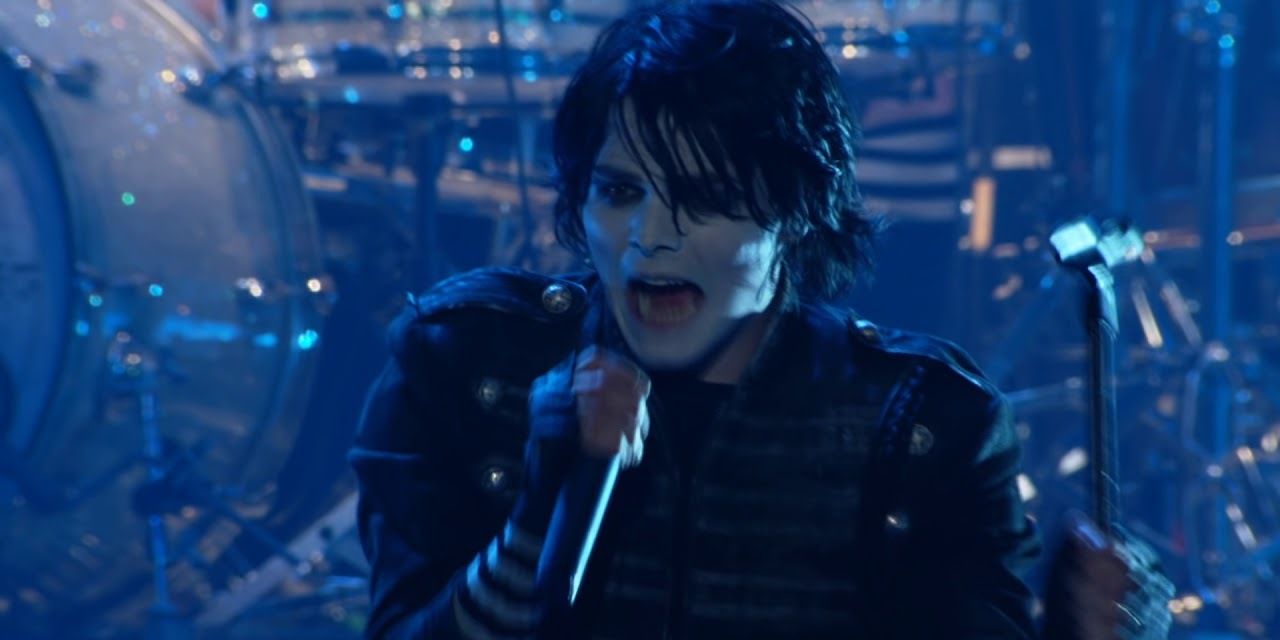When discussing the emo genre, it is absolutely essential to highlight the iconic influence of My Chemical Romance. Established in 2001, this American rock band carved a niche for themselves as a powerful voice and a significant influence within the emo music scene. Their sound is characterized by dark, intense, and emotionally charged storytelling, which resonates deeply with fans. This is particularly evident in their third studio album, The Black Parade, a title that alone suggests some of the most profound and somber songs the band has composed. Although My Chemical Romance has a well-defined musical style, their later tracks have not quite matched the haunting depth found in the song “Cancer.” This begs the question: what motivated Gerard Way to delve into such profound themes for a piece that many consider one of their most significant works?
The Black Parade serves as a conceptual masterpiece that revolves around a terminally ill character referred to as “The Patient.” The initial track, “The End,” establishes the album’s tone and narrative, introducing listeners to a protagonist who is gradually succumbing to cancer. The subsequent tracks explore various aspects of mortality, culminating in the iconic “Welcome to the Black Parade,” where the dying character reminisces about treasured childhood moments. Following this, “Cancer” presents a poignant confrontation with the devastating reality of the protagonist’s illness. Beyond the album’s overarching concept, this particular piece poignantly delves into the emotional and physical struggles faced by someone grappling with terminal illness. For Way, however, the song’s depth may not be as profound as some perceive it to be.
Gerard Way Reveals ‘Cancer’ Wasn’t Intended to Be So Profound
Clearly, the interpretation of a song’s meaning can vary widely among listeners. Some individuals perceive “Cancer” as a powerful metaphor for depression, while others interpret it as a direct representation of the disease itself. Lyrically, the song articulates The Patient’s agonizing experience as he observes his physical decline—his lips described as “chapped and faded”—while he grapples with the heartbreaking realization that he may never marry, feeling “just soggy from the chemo.” The poignant line “’Cause the hardest part of this is leaving you” resonates deeply, capturing the raw anguish of someone on the verge of death, burdened with the pain of departing from their loved ones. Yet, in a 2006 interview with NME, the band’s frontman explained that his goal was simply to create “the darkest song ever.” This intention aligns with the overall direction envisioned for The Black Parade. Way elaborated:
“It’s not a poetic track. It’s very direct, very brutal, but that’s the way disease is. Obviously, cancer is being used as a metaphor. But I also wanted the song to be directly about the disease, because it’s something that the patient has gone through and it’s a very powerful thing. For me, it was almost like an attempt to write the darkest song ever, and I think we achieved that.”
Regardless of the band’s original conception of “Cancer,” the song remains open to various interpretations. It stands as a testament to My Chemical Romance’s exceptional storytelling ability, even if it’s not rooted in their personal experiences. While the track faced criticism for its overwhelmingly bleak and emotionally charged nature—so much so that Way felt compelled to defend it prior to The Black Parade‘s release—it has been widely celebrated for its vulnerability, authenticity, and somber perspective.

Related
Paramore’s Longevity: The Surprising Secret Behind Their Continued Relevance
Paramore has outlived numerous emo rock contemporaries, showcasing their remarkable ability to evolve.
Why ‘The Black Parade’ Is Considered My Chemical Romance’s Greatest Album
My Chemical Romance’s early albums delivered unforgettable tracks such as “Helena,” “I’m Not Okay (I Promise),” and “Thank You for the Venom.” The tremendous success of these songs propelled the band to release their commercially and critically lauded third album, The Black Parade, which has since been celebrated as their most significant work, earning accolades from numerous critics as the band’s finest album. This album is celebrated for its fan-favorite songs like “I Don’t Love You,” “Mama,” “Teenagers,” and “Famous Last Words.” However, it is the theatrical elements and intricate storytelling woven throughout The Black Parade that truly garnered it critical acclaim. This album encapsulates what My Chemical Romance represents as a creative force within the emo music genre, providing fans with anthems to celebrate and headbang to even today.
Following the success of the chart-topping The Black Parade, the band released Danger Days: The True Lives of the Fabulous Killjoys in 2010, with “The Foundations of Decay” being their latest single.

[nospin]Here you can find the original article; the photos and images used in our article also come from this source. We are not their authors; they have been used solely for informational purposes with proper attribution to their original source.[/nospin]






